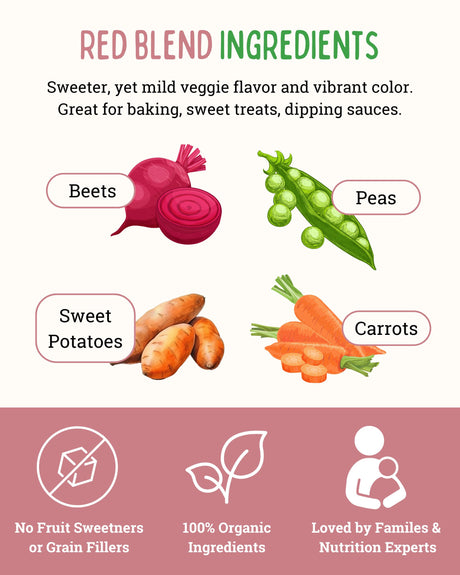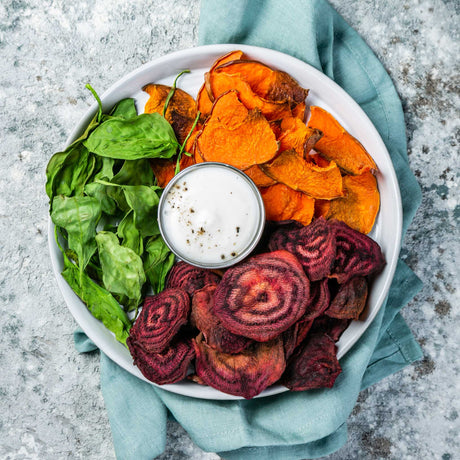The Essential World of Nutritional Supplements and Zinc
In today's fast-paced world, where balanced diets often take a backseat, nutritional supplements have emerged as vital components in maintaining our overall health. These supplements, ranging from vitamins to minerals, are not just about addressing deficiencies; they're about enhancing our dietary profile to support our busy and sometimes nutritionally imbalanced lifestyles.
They act as safeguards, filling in the gaps that our everyday meals might not fully cover, ensuring that our bodies get the necessary nutrients to function optimally.
Spotlight on Zinc: A Key Player in Our Well-being
Among the array of essential nutrients that support our health, zinc stands out for its critical roles in the body. This article focuses on this mighty mineral, delving into why zinc is indispensable for our well-being. Known for its significant contributions to immune function, cell growth, and wound healing, zinc is a powerhouse that works quietly but effectively in various physiological processes.
We'll explore the various facets of zinc – from its sources and benefits to understanding the right balance in our diets – providing a guide to this essential mineral and its impact on our health.
What is Zinc?
Zinc: A Fundamental Dietary Mineral
Zinc is a trace element, which means it's a type of mineral that our bodies need in small amounts, but its impact on our health is anything but minor. Found in cells throughout the body, zinc is crucial for the proper functioning of numerous enzymatic reactions and biological processes. It plays a vital role in immune function, wound healing, DNA synthesis, and cell division.
This mineral is also essential for proper growth and development, making it a critical component of a healthy diet, especially for children and pregnant women.
The Discovery and Nutritional Journey of Zinc
The journey of zinc in nutritional science is quite fascinating. While the element itself has been known since ancient times, its vital role in human health wasn't recognized until fairly recently. Zinc's story in nutritional science began in the 1960s, when researchers first identified its essentiality in human growth and development.
This discovery was groundbreaking and shifted the way scientists and nutritionists viewed the importance of trace minerals in our diet. Since then, zinc has been a subject of extensive research, shedding light on its multifaceted role in supporting human health and preventing diseases.
The Biological Importance of Zinc

Zinc in Immune Function: A Shield Against Illness
Zinc's role in bolstering the immune system is one of its most celebrated functions. It's essential for the development and function of immune cells, including neutrophils and natural killer cells. Zinc acts like a gatekeeper, helping the immune system distinguish between self and non-self entities, aiding in the appropriate immune response.
Its deficiency can lead to a weakened immune response, making the body more susceptible to infections and illnesses. Regular intake of zinc, within recommended levels, is therefore crucial in maintaining a robust immune system.
DNA Synthesis and Cell Division: The Building Blocks of Life
Zinc's involvement in DNA synthesis and cell division underscores its significance in growth and development. It plays a pivotal role in the replication and repair of DNA, ensuring that cells can grow and divide properly.
This is especially crucial during periods of rapid growth, such as childhood, adolescence, and pregnancy. Zinc's role in these fundamental biological processes means that adequate intake is essential for overall health and well-being.
Zinc and Skin Health: More Than Skin Deep
Zinc is also a key player in maintaining healthy skin and aiding in wound healing. It's involved in the production of new cells and the removal of damaged cells, processes that are crucial for skin repair and health.
Zinc’s anti-inflammatory properties can help in managing conditions like acne and eczema, while its role in wound healing is particularly beneficial in the recovery from cuts, abrasions, and surgical incisions.
Impact on Taste and Smell: Sensory Influences
An often-overlooked aspect of zinc's role is its impact on our sense of taste and smell. Zinc is required for the proper development and function of the cells responsible for these senses. A deficiency can lead to a diminished sense of taste and smell, which can, in turn, affect appetite and nutritional status.
Ensuring adequate zinc intake helps in maintaining these vital senses, contributing to overall quality of life and enjoyment of food.
Sources of Zinc

Discovering Zinc-Rich Foods
Zinc is found in a variety of foods, making it accessible through a well-balanced diet. For those who include animal products in their diet, meats such as beef, pork, and lamb are excellent sources of zinc. Poultry and fish, particularly shellfish like oysters, crab, and lobster, also contain significant amounts of this mineral.
For vegetarians or those looking to diversify their zinc sources, nuts like cashews, almonds, and peanuts are great options. Legumes such as lentils, chickpeas, and beans, as well as dairy products like milk, cheese, and yogurt, are also rich in zinc. These diverse sources ensure that everyone, regardless of dietary preferences, has access to foods rich in zinc.
Bioavailability of Zinc: Absorption Matters
While many foods contain zinc, it's important to understand that its bioavailability (the extent to which the body can absorb and use it) varies. Animal-based sources of zinc have higher bioavailability compared to plant-based sources.
This is due to certain compounds found in plants, like phytates, which can bind to zinc and inhibit its absorption. However, this doesn't mean plant-based sources aren't valuable. Including a variety of zinc-rich plant foods and employing methods like soaking, sprouting, or fermenting grains and legumes can enhance zinc absorption.
Supplementation: When Diet Isn't Enough
In certain situations, dietary sources of zinc might not be sufficient to meet the body's needs. This can be due to increased requirements, as seen in pregnant and breastfeeding women, or in individuals with certain medical conditions or dietary restrictions. For instance, vegetarians and vegans might need to pay extra attention to their zinc intake due to lower bioavailability from plant sources. In such cases, zinc supplements can be beneficial.
However, it's important to approach supplementation carefully, as excessive zinc intake can lead to adverse effects and interfere with the absorption of other minerals. Consulting with a healthcare professional before starting any supplement regimen is always recommended to ensure it's necessary and to determine the appropriate dosage.
Zinc Deficiency and Its Symptoms
Understanding Zinc Deficiency
Zinc deficiency occurs when the intake of zinc is not enough to meet the body’s needs. This can happen due to insufficient dietary intake, increased requirements, or poor absorption. While severe zinc deficiency is rare in developed countries, mild to moderate deficiency is relatively more common and can still impact health significantly.
It's essential to recognize that even a small shortfall in zinc intake can disrupt numerous bodily functions, given zinc’s role in a variety of critical processes.
Identifying Symptoms of Zinc Deficiency
The symptoms of zinc deficiency can be subtle and varied, making it somewhat challenging to diagnose. Some common signs include weakened immune function leading to frequent infections, slowed wound healing, loss of appetite, and a diminished sense of taste or smell. In children, zinc deficiency can manifest as growth retardation and delayed development.
Skin issues like acne, eczema, or dry skin can also be indicative of insufficient zinc levels. In more severe cases, hair loss, diarrhea, and delayed sexual maturation can occur.
Populations Vulnerable to Zinc Deficiency
Certain groups are at a higher risk of zinc deficiency. This includes pregnant and breastfeeding women, who have increased zinc requirements. Vegetarians and vegans may also be at risk due to the lower bioavailability of zinc from plant-based sources. Additionally, individuals with gastrointestinal diseases like Crohn’s disease or ulcerative colitis, which affect nutrient absorption, are more susceptible to zinc deficiency.
Elderly people, whose dietary intake and nutrient absorption might be compromised, and those with alcohol addiction, where zinc absorption is often impaired, are also at risk. Understanding these risk factors is crucial for early identification and intervention to prevent the associated health complications.
The Benefits of Zinc Supplementation
Enhancing Health with Zinc Supplements
Zinc supplementation can offer significant benefits, particularly for those unable to meet their zinc needs through diet alone. Supplements can help fill nutritional gaps and ensure the body has enough zinc to support its vital functions.
They can be particularly beneficial in boosting the immune system, aiding in wound healing, and improving overall skin health.
Zinc and Immune Health: Fighting the Common Cold
One of the most well-known benefits of zinc supplementation is its potential to enhance immune health. Numerous studies have suggested that zinc can help reduce the duration and severity of the common cold. Zinc appears to have an antiviral effect, particularly in the upper respiratory tract, where it may inhibit the replication of cold viruses.
Clearer Skin Through Zinc: Combating Acne
Zinc’s anti-inflammatory and antibacterial properties make it beneficial for those struggling with acne. Research has shown that zinc can reduce the inflammation associated with acne and may inhibit the growth of acne-causing bacteria.
Zinc in Age-Related Diseases: A Protective Role
As we age, our bodies face a range of health challenges, from declining immune function to increased risk of chronic diseases. Zinc supplementation has been studied for its potential role in age-related diseases, including age-related macular degeneration (AMD) and osteoporosis. Some research suggests that zinc might help slow the progression of AMD, offering a protective effect for eye health.
Additionally, its role in bone metabolism suggests it could be beneficial in maintaining bone strength and reducing the risk of osteoporosis.
Understanding the Right Balance
While the benefits of zinc are significant, it’s important to approach supplementation with caution. Excessive zinc intake can lead to adverse effects and interfere with the absorption of other important minerals like copper.
It's essential to consult with a healthcare professional before starting any supplementation to ensure it's appropriate for your individual health needs and to determine the right dosage.
Navigating Zinc Intake
Determining the Right Zinc Supplement Dosage
When considering zinc supplementation, it's important to first assess your dietary intake. If your diet includes zinc-rich foods, you may require a lower dose or no supplement at all. For those needing supplements, it's crucial to start with the recommended dietary allowance (RDA) and adjust as necessary based on individual health needs and dietary intake.
It's always advisable to consult with a healthcare provider to determine the appropriate dosage, especially for specific conditions that might affect zinc metabolism, such as gastrointestinal disorders or certain medications.
The Risks of Exceeding Recommended Intake
While zinc is essential for health, there's a delicate balance between sufficient intake and overconsumption. Exceeding the recommended daily intake can lead to adverse effects, including gastrointestinal upset, impaired immune function, and lower levels of other important minerals like copper due to competitive absorption.
Zinc Supplements and Interactions

Exploring Forms of Zinc Supplements
Zinc supplements come in various forms, each with its own set of benefits and absorption rates. Some common types include zinc gluconate, zinc sulfate, and zinc acetate. Zinc gluconate is often found in lozenges for cold therapy and is gentle on the stomach. Zinc sulfate, while an economical option, may not be as well-tolerated by some individuals.
Zinc acetate, believed to be more effective for treating the common cold, is another option. The choice of supplement depends on individual health needs and tolerances, and it’s important to read labels and understand the differences.
Navigating Zinc Interactions
Zinc can interact with various minerals and medications, making mindful supplementation essential. High doses of zinc can inhibit the absorption of copper, another essential nutrient, leading to imbalances. It's important to maintain a healthy balance of these minerals.
Zinc also has the potential to interact with certain medications, including antibiotics and diuretics, affecting their efficacy. If you're taking medication, it’s crucial to consult with a healthcare professional before starting zinc supplements to avoid any adverse interactions.
Maximizing Zinc Absorption
To maximize the benefits of zinc supplements, timing and dietary considerations are key. Zinc supplements are best taken with food to enhance absorption and minimize gastrointestinal discomfort. However, certain foods and beverages, like high-fiber foods and coffee, can inhibit zinc absorption.
It’s advisable to take zinc supplements a few hours apart from these items. Additionally, considering zinc’s interactions with other minerals, it's wise to avoid taking zinc supplements at the same time as iron or calcium supplements. Following these guidelines can help ensure optimal absorption and effectiveness of zinc supplementation.
Mindful Supplementation Practices
If you decide to incorporate zinc supplements into your diet, starting with the lowest effective dose is advisable. Monitor your body’s response and adjust as needed, always staying within the recommended limits. It’s also beneficial to periodically re-evaluate your need for supplementation, especially if your diet or health circumstances change.
Regularly consuming a variety of zinc-rich foods can reduce the need for supplements and provide a more natural, holistic approach to maintaining adequate zinc levels. Remember, supplements are meant to complement, not replace, a balanced diet.
Embracing Zinc for Optimal Health

The Vital Role of Zinc in Wellness
As we conclude our exploration into the world of zinc and its supplementation, it's clear how vital this mineral is for our overall health and well-being. Zinc plays a crucial role in numerous bodily functions, from bolstering our immune system to aiding in wound healing and DNA synthesis.
Its importance in our daily dietary intake cannot be overstated, as even a mild deficiency can have significant impacts on our health.
Balancing Diet and Supplementation
For anyone considering zinc supplementation, the key takeaway is to make informed and mindful choices. Understanding the role of zinc in your diet, recognizing the signs of deficiency, and knowing the best food sources are essential first steps.
Supplementation should be approached with caution, respecting the recommended daily limits and being aware of potential interactions and side effects. It's about finding the right balance that works for your individual health needs and lifestyle.
The Importance of Professional Guidance and Balanced Diet
While navigating the realm of supplements, including zinc, it’s crucial to consult healthcare professionals, particularly if you have existing health conditions or are on medication. Their guidance can ensure that any supplementation is safe and beneficial for you.
Additionally, emphasizing a balanced diet rich in a variety of nutrients should always be the foundation of our health strategy. Supplements can play a role, but they are most effective when used to complement a diet that’s already nourishing and varied.
Let’s remember that the journey to optimal health is a holistic one, combining wise dietary choices, informed supplementation, and professional advice to achieve our best health.
Leave your comments below; we love to hear from you! And don't forget to follow EasyPeasie for more veggie info and convo on YouTube, Facebook, and Instagram! ~ThePeas













